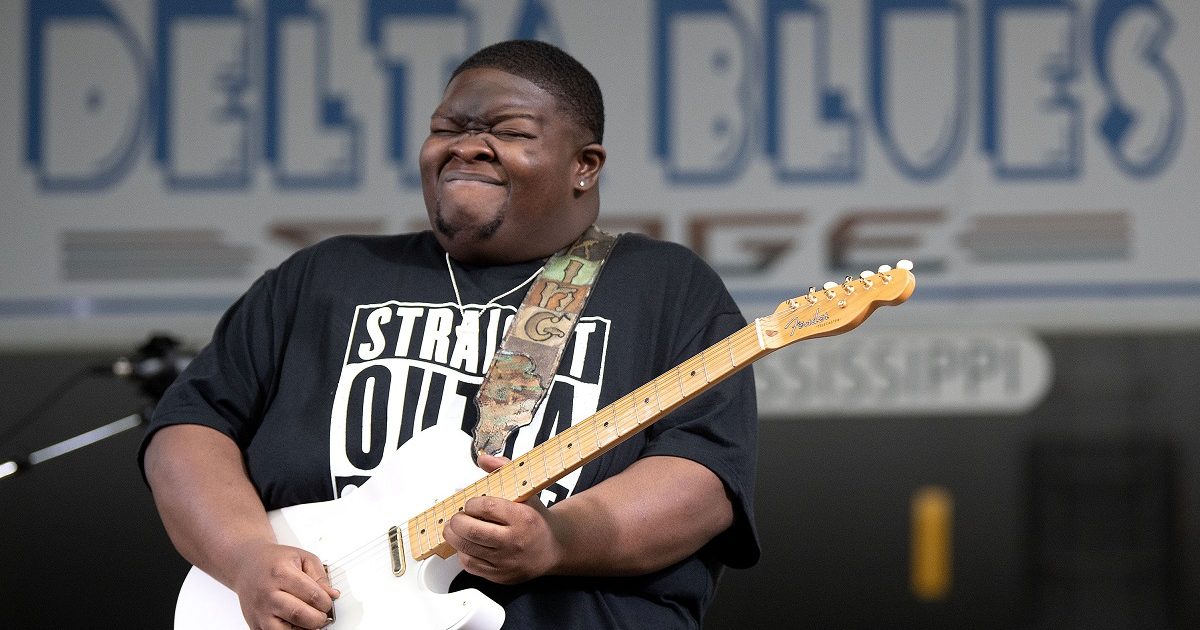Though she downplays notions of fame and exposure, vocalist, songwriter, and bandleader Shemekia Copeland qualifies as a genuine star.
Among 21st century blues artists, she’s right there with Christone “Kingfish” Ingram, Gary Clark Jr., Robert Cray, and Eric Gales as performers whose audience outreach and cache extend far beyond the restrictive circle of specialty radio shows and festivals, where far too many fine performers in that genre are confined. From profiles in The Washington Post, Chicago Tribune, New York Times, Philadelphia Inquirer, CNN, and NPR to coverage in such journals as Rolling Stone and No Depression, Copeland’s ascendency as a performer, her maturation, and her poignant and important vocal and compositional force are consistent and impressive.
It’s accurate, if a bit cliched, to say Copeland was born to sing the blues. The daughter of the legendary Texas shuffle blues great Johnny Copeland, she grew up in Harlem and was accompanying her father as an eight-year-old on the stage of the famed Cotton Club in New York. A decade later she signed with Alligator Records and began a career that’s done nothing but soar since the release of her first album for the label, Turn Up The Heat, in 1978.
Her two most recent LPs, 2018’s America’s Child and 2020’s Uncivil War have cemented her stature. America’s Child featured a rousing version of Ray Wylie Hubbard’s “Barefoot In Heaven,” the personalized romantic tune “Fell In Love With A Honky,” and a tough cover of “Nobody But You,” a tune immortalized decades before by her father. Uncivil War reflected a major happening in Copeland’s life – the birth of a son – and also included memorable numbers once again addressing contemporary issues. America’s Child won both the Blues Music and Living Blues Awards as Album of the Year. Uncivil War won the same honor from not only Living Blues, but DownBeat and MOJO magazines, too. Copeland’s earned multiple Blues Music honors and GRAMMY nominations to date.
Yet many, Copeland included, feel the best is yet to come. Evidence of that can be heard throughout the 12 songs on her newest Alligator LP, Blame It On Eve, which was released August 30. This latest effort again superbly combines social insight, humorous reflection, and tremendous musical numbers. The results are a dynamic presentation of the ideal combination of modern studio technology, distinctive personal commentary, plus the lyrical flair and expressiveness that’s characterized great blues since its inception.
Blame It On Eve, also recorded in Nashville, is her fourth project produced by Will Kimbrough and Copeland gives him high praises for his continuing contributions to her music.
“With Will it’s always magic and the ideal collaboration,” Copeland told BGS during a recent interview. “He really understands my music and how to get the best out of what I’m doing in the studio. No matter what I bring him, he finds a way to improve it, to make it better, and make it work. He’s really been a huge key to the success that I’ve had, and I also really love working in Nashville.”
Kimbrough utilized a host of outstanding special guests for the session. They include Alejandro Escovedo, Luther Dickinson, Jerry Douglas, DeShawn Hickman, Charlie Hunter, and Pascal Danae (of Paris-based band, Delgres).
While Copeland has never shied away from addressing social issues on her albums, she doesn’t like or embrace the notion she’s being “political.” Instead, she prefers the term “topical,” while freely acknowledging that she sees it as important to discuss a variety of subjects, topics and ideas in her music. “I don’t want to be labeled or pigeonholed in any fashion,” she says. “But at the same time, I’ve always felt that my music should speak to contemporary things, to the things that I see and experience. If you want to say that I do cover topical or current issues, that’s accurate. But I don’t see it being political so much as I see it being real, being willing to talk about things that are important to me as a woman, a blues musician and a Black artist.”
From that standpoint, the title track’s forthright dive into the issue of women’s reproductive rights is a prime example of Copeland’s willingness to express herself on thorny and controversial topics. Douglas brings his superb skills on Dobro to a song about Tee Tot Payne, the 20th century Black musician who tutored Hank Williams on the blues. “I was really glad to do that one,” Copeland adds. “There are too many people who don’t know that story or haven’t heard about Tee Tot Payne. If I can inform them about who he was and why’s he important, then I’ve done a service.”
Hickman’s stirring sacred steel contributions enrich “Tell The Devil,” while Copeland took on a special challenge with the song “Belle Sorciere,” singing the chorus in French with the tune’s melody supplied by Danae. “Hardly,” Copeland laughs when asked if she’s fluent in French. “I really tried to make sure that I had the correct words and sang them the right way. I’ve always wanted to do songs in other languages, and I really enjoyed doing that one but it wasn’t easy.”
The release also has its share of fun tunes, notably “Wine O’Clock” and rollicking strains of “Tough Mother.” Copeland also has a pair of excellent cover numbers. One is a heartfelt version of “Down on Bended Knee,” previously done by her father, and an equally compelling rendition of Stevie Wonder’s “Heaven Help Us All,” which serves as a fitting and dynamic closer to a marvelous LP.
Interestingly, when asked how much she enjoys her stature at or near the top of the blues world, Copeland discounts that contention. “In my mind, I’ve still got a long way to go in terms of how far and where I want to see my music go,” Copeland concludes. “I don’t think I’m at the stage of some of the blues rockers like Jon Bonamassa. I’m still aiming for higher places and peaks artistically. You should never be satisfied or settle for things, but keep pushing and striving for excellence. I learned that lesson early and that’s how I’ve continued my career and plan to keep on striving and pushing.”
Nashville audiences will get the chance to hear Copeland in multiple settings this September. She will be featured during AmericanaFest on September 17 at 3rd and Lindsley. The next day, her showcase at Eastside Bowl will air live on Wednesday afternoon, September 18, on WMOT-FM (89.5) Roots Radio. It will also be video streamed on NPR, filmed for NPR Live Sessions, and recorded for NPR’s World Café’s “Best Of AmericanaFest” feature to air later.
Photo Credit: Janet Mami Takayama





